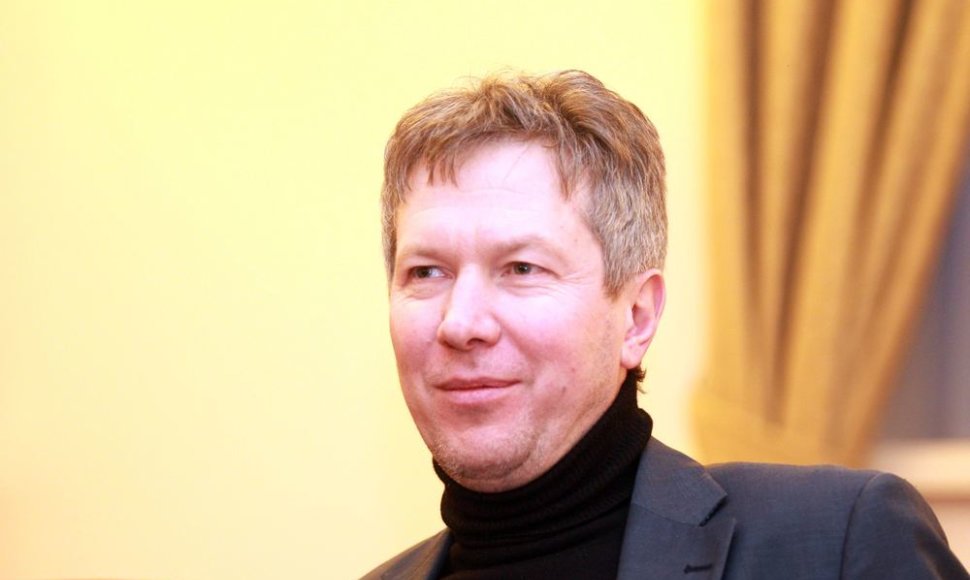- Skimming through old newspapers from 1920-1926 and campaign messages printed therein, one gets an impression that little has changed since then. Back then, much like now, politicians walked on each other's heads to get into power.
- Both between 1920 and 1926, the period of parliamentary democracy, and between 1990 and 2012, our national governments made very many mistakes. During the period of the First Republic as well as the Second Republic, the so-called political elites came to power without any preparation or skills to rule a country.
In both cases, the greatest handicap is that the political elite is unable to employ democratic institutions efficiently and productively. In other words, there is a shortage of political professionals – each successive election brings new government that wants to change everything radically. It shows a poor understanding of national interests. You shall recall that in the initial years of the First Parliamentary Republic, Lithuania lost Vilnius. The Constituent Seimas was elected in May 1920, and in autumn of that same year, due to populist policies and sudden souring of relations with the southern neighbour (Poland), we de facto – and in the eyes of international law, de jure as well – lost about a third of the country's territory, including the capital city Vilnius. This was the toughest lesson of parliamentary democracy from the First Republic, one we should remember even today.
- Do we?
- Alas, no. Over the 22 years of the Second Republic, we've lost about 25 percent of the population. In terms of demographical, human, intellectual resources, the loss is almost equal to the one in 1920, when Poland occupied and annexed Vilnius. In both cases we lost people, albeit for different reasons. The result is similar, though – our national elite is vanishing. Through voluntary emigration this time. That means that over the 22 years of parliamentary democracy, we failed to build a country of our dreams. This is the most pressing problem of our time.
- But perhaps it is not the problem of politicians' professionalism but rather one of their humanity? Perhaps what they lack is not state-running skills but rather moral character – their goals for coming to power are all wrong?
- When it comes to morality and values, one could say that over the century since the Constituent Seimas, the situation has changed somewhat – but not to the better. I strongly believe that the society of the First Republic, which emerged from the ruins of the Russian Empire, was much superior in its moral standing. There was no lack of embezzlement of public funds for one's personal gain, nor corruption, but the extent was much smaller. Moreover, many high officials were sentenced for corruption, even premiers and ministers would lose their posts. In that respect, the situation in the Second Republic is much grimmer.
- People are in want of faith and hope...
- The First Republic had a clear model of a nation state. After the election of the first Seimas, the goal was the realization of the nation state model and territorial integrity – the return of Vilnius. This dream was still nurtured in 1940, when the country was occupied by the Soviet Union. The nation realized – perhaps not at once but definitely after the second occupation – that its dream was shattered and that it was worth fighting for. And that was the basis for the 1944-1953 guerilla movement.
And what we see now is one reform following another, wherever you look: education, social policy, agriculture, internal affairs – no stability in either area. No one knows what other reforms the next minister might come up with. A mess that we have now has no parallels from between the wars. Starting in 1926, the state acquired a clear national, in certain cases even nationalistic, character – but by no means xenophobic or racist – and built it up until 1940.
The building was not an easy endeavour, as they tried to include national minorities. However, there were no problems with Lithuania's Poles like the ones today. And those that did come up would be solved more rationally, efficiently, and flexibly. We always had a gentlemen's union with Jews: the populous Jewish community supported the Lithuanian state and even the authoritarian regime of President Antanas Smetona. From all that we can conclude that the inter-war Lithuanian society – ethnic Lithuanians as well as ethnic minorities – had an ideal model for the Lithuanian state and worked to realize it.
- After regaining independence, we, too, had a goal – joining the European Union and NATO.
- Joining the EU and NATO were short-term goals, even though some believe it is a cure from all diseases. This short-sightedness – and the fact that we managed to become members quick – have not contributed to our political and civil culture. We joined the organization and now we wander without any apparent purpose.
If you asked me, what kind of a model for the Lithuanian state we are pursuing, what its moral and political idée fixe is, I would not be able to say.
Just like all kinds of threats – real or imaginary – haunted us between 1992 and 1999, those same problems keep pestering us after 2004, even though we are now members of the EU and NATO. It means that these are our own political, cultural, moral, national identity-related and not external problems. These are problems of a Lithuanian as a citizen, yet we do not tackle them, perhaps we even do not realize they exist. People do not feel comfortable living in a state that someone threatens from dawn till dusk, one which is constantly irritated and seeks global goals.
I fear that these elections will not bring any wind of change. The Seimas will be colourful enough, polarized, fragmented – politically, ideologically, in terms of its interests.
Algimantas Kasparavičius
Kasparavičius, 49, works at the Lithuanian History Institute. He received a PhD in 1995 for his thesis on the 1926 Lithuanian-Soviet non-aggression treaty.
His main fields of interest include the history of Lithuania's 20th century politics, its domestic and international aspects; international relations, the history of diplomacy; issues in parliamentarism and authoritarianism; civil society development.













